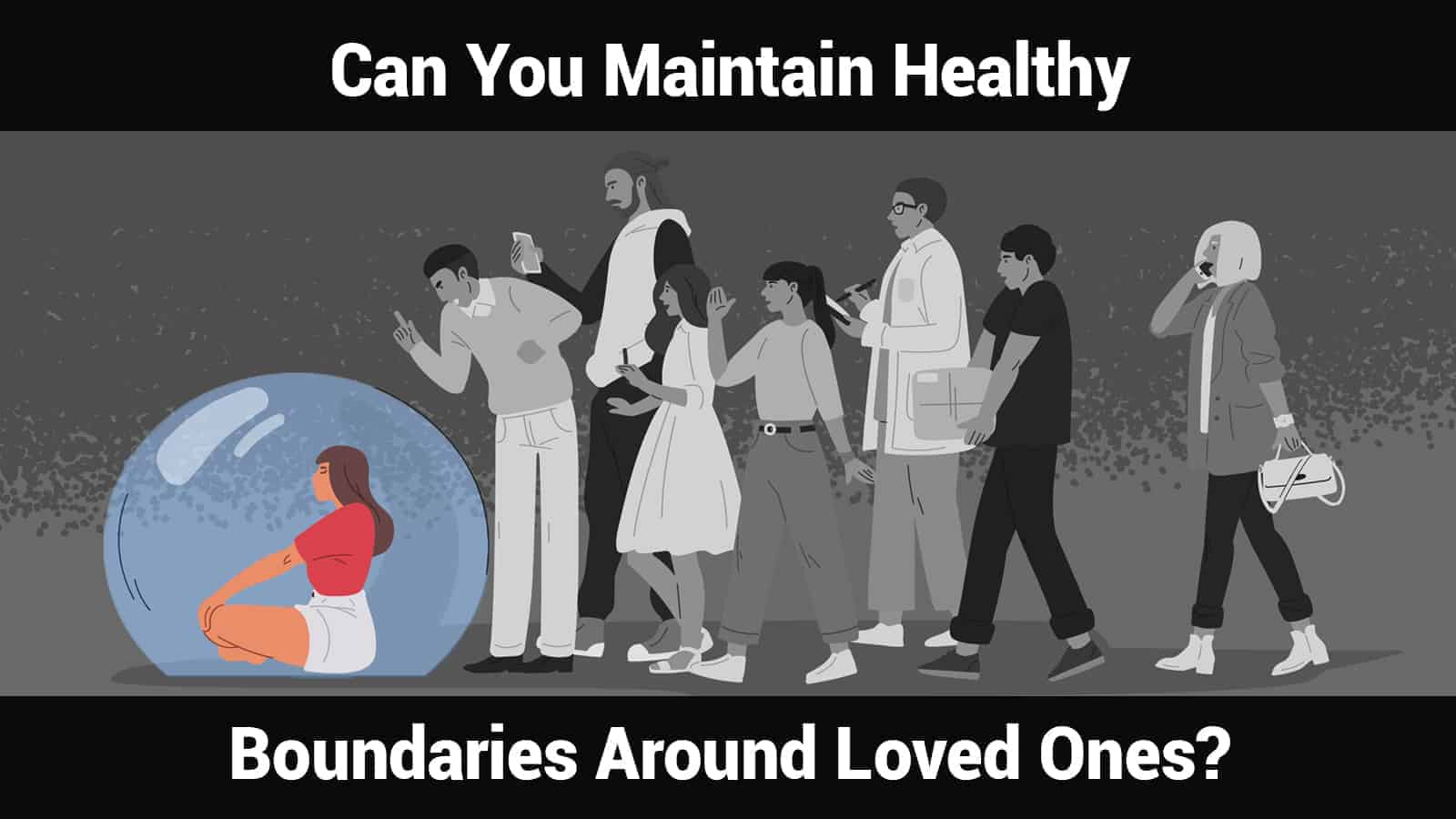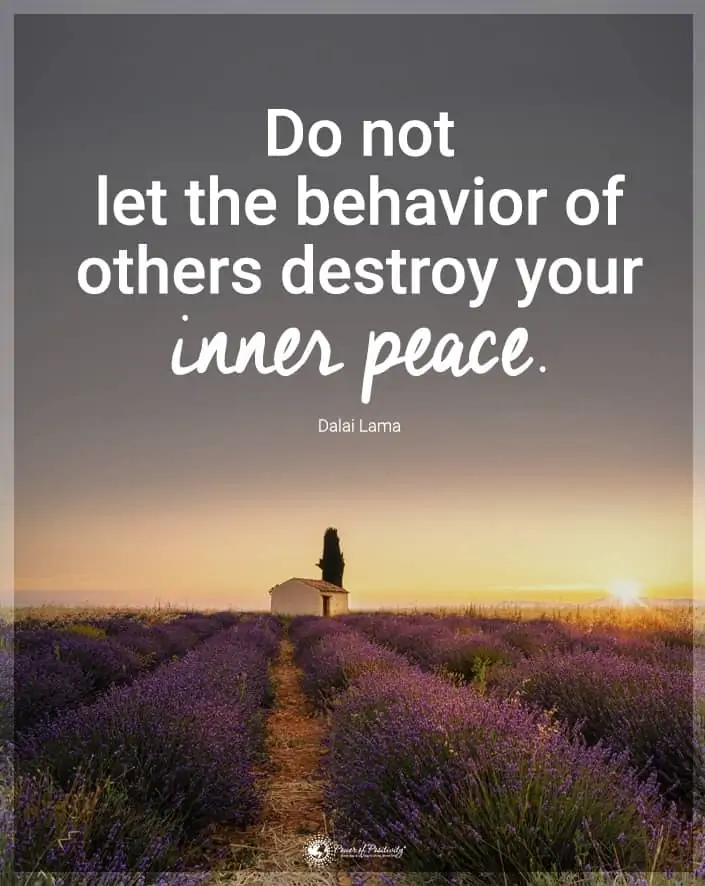Boundaries naturally exist in many different spaces. There are socially enforced boundaries, such as the concept that you wouldn’t hug a total stranger for no reason. There are professionally enforced boundaries, like the knowledge that it’s frowned upon to begin romantic interactions with colleagues. But can you maintain healthy boundaries with your most cherished ones?
Of course, setting ground rules helps improve your personal relationships, too. But many people struggle with the idea of healthy boundaries around loved ones. There’s almost a negative stigma against it, as if it’s shameful or selfish to have these boundaries with your closest companions. There may be people in your life who have been offended or insulted by your attempts to determine boundaries.
The truth, however, is that these boundaries are often entirely instrumental to healthy relationships. This need applies to romantic, platonic, familial, and any other form of relationship. If you’ve struggled to set healthy and positive boundaries with the people closest to you, the chances are that you’ve suffered for it. And if you’ve tried to establish and enforce those boundaries and found poor results, things can be very confusing. So can you maintain healthy boundaries around loved ones? Let’s dig deeper.
1. What Does It Mean to Maintain Healthy Boundaries?
Healthy boundaries take into consideration the three components of your relationships with others. Those components are you, the other person, and the actual relationship you have. These three factors need to feel safe, happy, and respected with nourishment, maintenance, and overall satisfaction.
In general, five kinds of boundaries can be healthily set and involved in relationships. You may personally find additional boundary types as per your needs, but most of them are contained within these five. They are:
· Emotional Boundaries
These refer to your personal feelings, how you express them, and who you confide them to. You might be more of an open book, or you may keep your cards close to your chest. It might take you time to open up about emotions to others, and there are some people you may not ever share your feelings with.
· Physical Boundaries
These types of boundaries refer to those involving your body, your personal space, and your privacy. This can include things like physical shows of affection, such as holding hands, hugging, and kissing. The level of physical boundary you have for each person likely depends on your relationship with them. The more comfortable you are with them, the more likely you will be alright with them taking up your physical space.
· Financial Boundaries
Money can be a contentious subject, even in close relationships, and that’s why appropriate boundaries are essential. These boundaries involve who knows about your finances, who you’ll loan money to, and how your finances may be shared.
· Intellectual Boundaries
An intellectual boundary is related to your beliefs, thoughts, and personal moral compass. A limitation of this variety might involve your lines on discussing politics and current events or on your openness to debate. An example of a very common intellectual boundary does not want others to invalidate your viewpoints.
· Sexual Boundaries
These boundaries involve what you’re comfortable doing that has an intimate nature. This limit includes what you’re comfortable doing in the bedroom, even with trusted partners. It can also be about who you’re happy to perform intimate activities with or how comfortable you are with innuendo and lewd jokes.
Specific boundaries around loved ones differ from person to person. Healthy boundaries that exist in relationships involve mutual responsibility, well-communicated expectations, and open honesty.
2. Why Is It Important to Maintain Healthy Boundaries?
You’ve already heard plenty about the fact that healthy boundaries are crucial around loved ones. But why is that the case? Here are some ways:
· They Allow Individuality
The ability to separate yourself and your feelings from other people’s feelings is crucial to maintaining a good relationship. When you’re close to someone, your thoughts and emotions can start to tangle or blur together. To maintain a sense of who you are and avoid codependency, you must keep the lines evident. You hold your autonomy, identity, and control. And, ironically, by being further apart, you also can get closer in safer ways!
· They Maintain Emotional Energy
Without boundaries, you’ll always have to deal with people making you uncomfortable. This discomfort can breed resentment and tire you out. Not only can this lead to conflict, but it can also harm your positive thinking. Your self-esteem can get broken down over time if you don’t advocate for yourself with boundaries.
· They Keep Separate Things Separate
As a person with a lot going on in your life, you have many different facets. You have to juggle additional responsibilities and “faces,” presenting various aspects of yourself in other situations as relevant. When you don’t maintain the boundaries between these significant facets, you can have a messy and uncomfortable collision. Research even proves that blurred boundaries can decrease positive thinking and lead to unhealthier choices. This is especially true for work-life balance, which is a crucial separation you’ll need when living with your family.
· They Offer Space For Vulnerability
Boundaries have occasional exceptions as dictated by those who set them. When those exceptions come into play, they quickly portray that something important is happening. For example, if you never talk about your relationship problems with your friends, they’ll know something’s up when you do. But if you’re always oversharing, that vulnerability becomes less meaningful and isn’t vulnerable anymore. For there to be space to be vulnerable, there has to be a space there, to begin with.
3. How To Determine Your Boundaries
Everyone’s boundaries are different. You’ll need to determine where yours lie before you communicate them to others. This discussion involves figuring out exactly where your limits lie and what you’re uncomfortable with. Here are some tips for doing so:
· Remember Your Worth
Low self-esteem can lead to poorly determined boundaries. When you don’t think you deserve much, you’re less likely to realize that your boundaries matter. You deserve to be treated correctly by the people in your life, especially your loved ones. Those who won’t respect your needs and limits aren’t people you should have in your life.
· Consider Your Needs To Maintain Healthy Boundaries
Please dig deep and determine what it is that you want and need from your relationships. What values do you have that contribute to these needs? How have different kinds of treatment made you feel in the past? What are some basic human needs and rights that you may have neglected? What is your definition of comfort? All of these things are central to determining your exact boundaries.
· Make Sure You Have Space
Every human being needs space to breathe, to have privacy, and to be alone. The only difference is how much each individual prefers to have! Figure out where you lie. The only thing that must be certain is that you do have that space. Don’t forget that online spaces count, too. Research shows that many people don’t realize how much they can be controlled and taken advantage of through technology!
· Communicate
You can’t have healthy relationships without communication, and that’s for a good reason. It’s no wonder, then, that you need to communicate if you want healthy boundaries to be set. When you discuss your needs with your loved ones, you get to outline rules and preferences clearly. You get to talk about why this matters to you openly and honestly. This also opens the floor for a broader discussion on boundaries and the possibility of reasonable compromise. It shouldn’t end there, either! Regular check-ins for further communication on these matters will ensure a better bond, says research.
4. How To Maintain Healthy Boundaries Around Loved Ones
So, you’ve determined your boundaries and communicated them to your loved ones. Now comes the final step in maintaining healthy and positive boundaries: enforcing them. If your limits are told but always ignored, they serve no purpose. You have to do your part to ensure that they’re maintained. Here’s how to do that:
· Learn To Say No
If you’ve struggled with boundary-setting in the past, chances are you’re also a bit of a yes-man. You might be a bit of a people-pleaser, and saying “no” might even feel mean to you. This is especially true for your loved ones. You want to do things for them and make them happy, after all! But you also have to put yourself first sometimes. If your plate’s full, if you’re too tired, or if you don’t want to do something, you can say no! This can also help you maintain boundaries with a single word. “No” is a full sentence, and it’s all you need to say to exclude yourself from a situation.
· Be Consistent When You Maintain Healthy Boundaries
Boundaries can be flexible, but you must communicate changes in them to those around you. If your limits aren’t consistent, people are going to have a hard time abiding by them. At some point, it’ll be easier for them to ignore your boundaries because trying to follow them is too hard! Being consistent also ensures that you remember your limits and can practice enforcing them.
· Respect Other People’s Boundaries, Too
If you demand respect but refuse to give it to others, the hypocrisy will harm your relationships. You’ll learn best about your boundaries by respecting those of your loved ones. Plus, it sets a good example and shows the people around you that you truly practice what you preach.
· Be Assertive Without Accusation
To enforce boundaries, you must be assertive. You can’t let people walk over your limits, after all. But it’s tough to assert yourself without also sounding accusatory. You can help to reduce this problem by using “I” statements. These include sentences starting with “I feel…”, “I’d like…”, “I need,” and so on. These statements will sound genuine and will allow you to be direct without putting other people on guard. This can preserve your relationship with your loved ones, allowing for positive communication.
Final Thoughts On Some Ways To Maintain Healthy Boundaries Around Loved Ones
Healthy boundaries aren’t something negligible. They are necessary for the health, safety, and satisfaction of relationships and bonds. Make sure that you and your loved ones set and maintain healthy boundaries that you can all respect. Believe it or not, this will improve your relationship in the long run!

















 Community
Community

